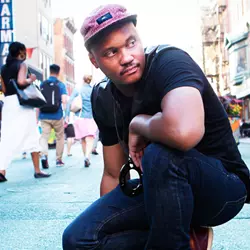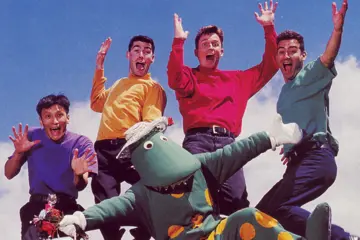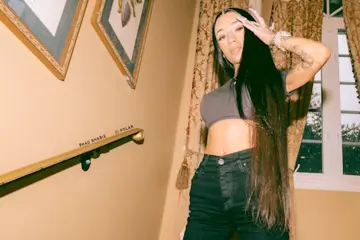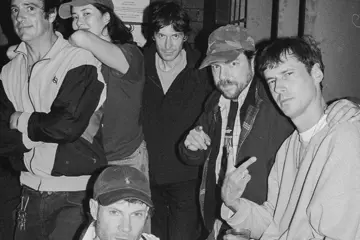 Son Little
Son Little"I think it's safe to say most of the world is, at this point, addicted to 808s. It's better if you just admit it," submits Aaron Livingston who, as Son Little, plays rhythm and blues his way.
Despite this, he's oft been referred to as a troubadour of blues, a saviour reviving a bygone art, and his music labelled New Americana. The irony is not lost on Livingston. "As far as I'm concerned I'm trying to do as much of something new as I can," he says, "anything differently to set myself apart and doing the best version of me as I can do."
"I think it's safe to say most of the world is, at this point, addicted to 808s. It's better if you just admit it."
Starting out in Philadelphia, he would become known for his dour vocals riding out the hook for The Roots' Guns Are Drawn off their 2004 album Tipping Point and collaborating with RJD2 with whom he would create an album as a duo on The Abandoned Lullaby (2011). With the release of debut EP Things I Forgot in late 2014, Livingston began his solo quest with a new name. As Son Little, he set himself apart by adding drum machines and 808s to his blues.
"That's just me doing what I love to do. I've always loved drum machines and the sound it makes when you hit it with what most people would consider organic or traditional instruments and combining them to make a more synthetic sound. And each time as I move forward I look for new ways to exploit that."
Don't miss a beat with our FREE daily newsletter
Last October Livingston released his extremely well-received debut full-length Son Little - an offering devoid of any single, easily defined category. Instead, Livingston has found the overarching ties in his music are its American roots, which goes some way to explaining the heightened tension in his work.
"I'm probably not alone in feeling like we've been living under pressure for a long time. At least I've felt that way and I know a lot of people around me have felt that way and do feel this way."
The blues have always provided an avenue to express social disaffection, and while not intentionally mirroring that sentiment, Livingston's nu-rhythm & blues still maintains that tradition. "You know it's a funny thing when people talk about blues it's like, 'I'm down' I'm fat, I'm broke, I'm hungry' and they might think, 'Well, I don't want to hear this sad music.' But, I think it's always been there to soothe you and I think that's what's always been unique about the music is that it can be sad and it can make you cry but at the same time it's healing. So, you know, it's a good cry."















